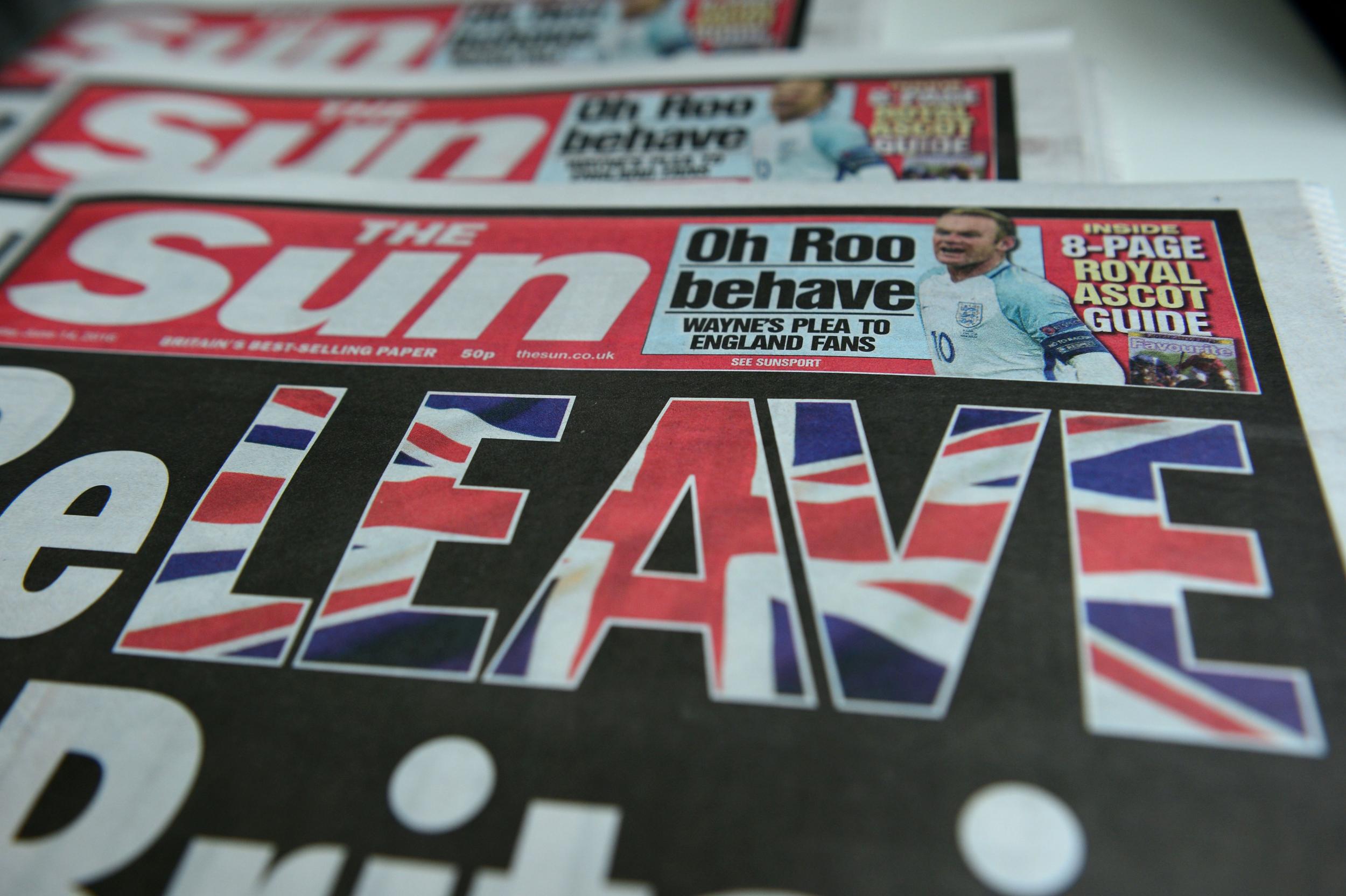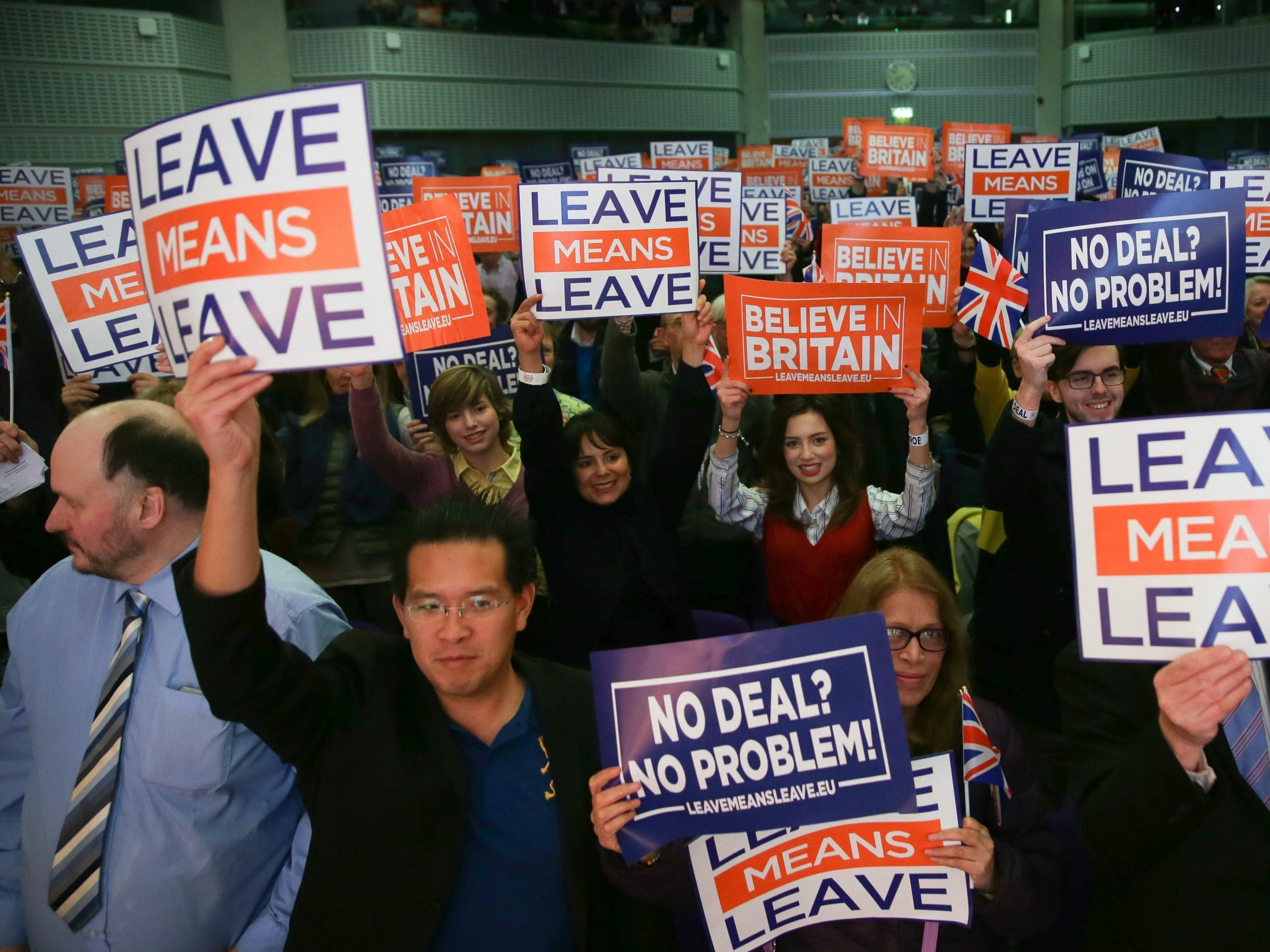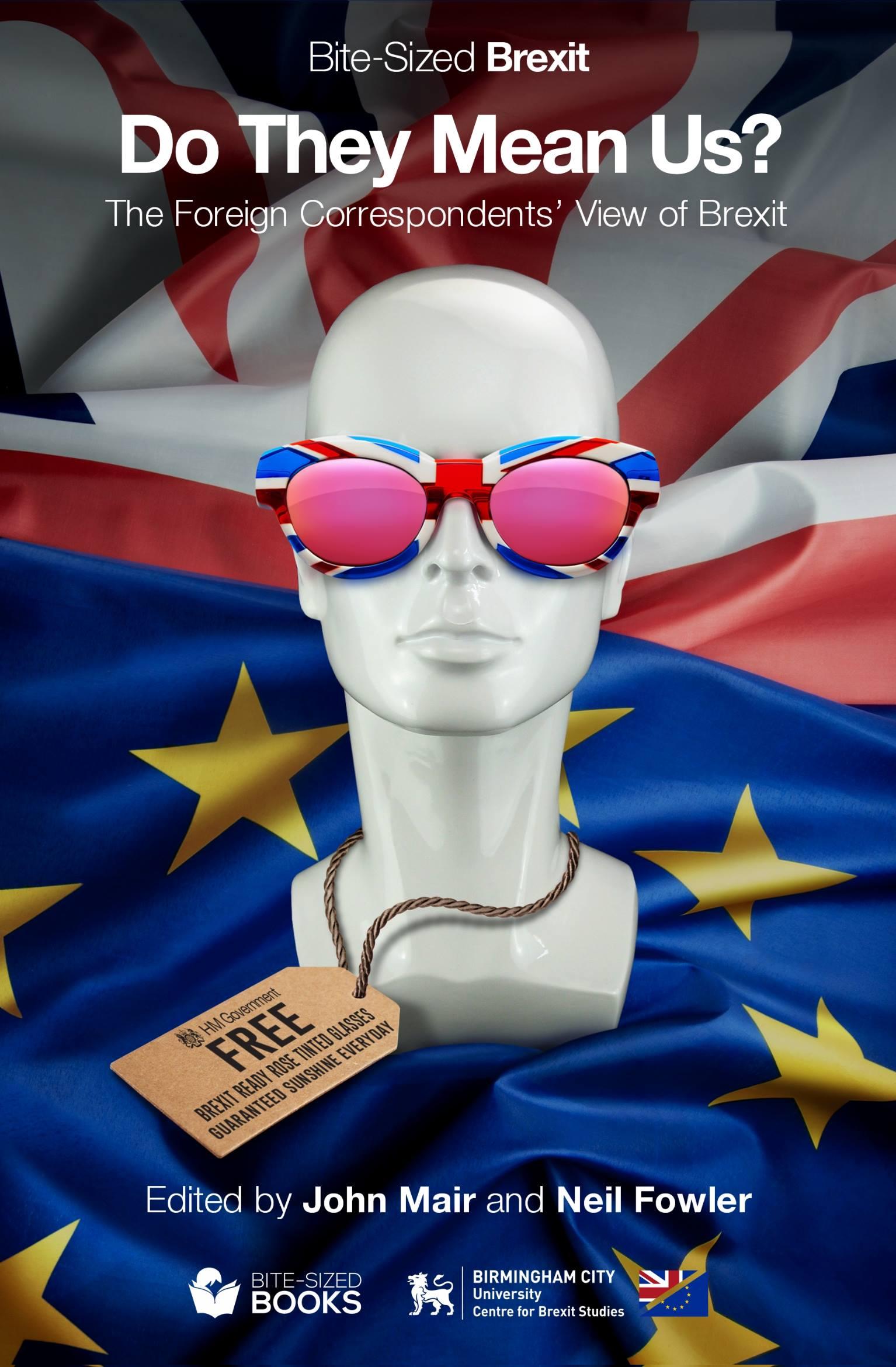How our right-wing press entrenched Brexit divisions
While the European media has been mostly objective in its reporting, the highly partisan nature of British Brexit coverage is deepening our political divide, argues Jessica Buxbaum in a new book, ‘Do They Mean Us?’

To first understand how the European and British press covered the Brexit referendum and subsequent aftermath, a general knowledge of the differences and similarities of their news sectors is necessary.
While at least one tabloid dominates circulation in nearly every European country, a broadsheet is part of the top three widely-read newspapers in many nations such as Germany, Spain, Austria and France.
The same is not true for the UK where the three most read newspapers – The Sun, the Daily Mail and the Daily Mirror – are all tabloids. Britain’s fixation with tabloids stems from the country’s regard for social stratification. Class is engrained into the cultural framework of British society and Britons take discernible pride in their class identity, not just in their work but also in the news they absorb.
While broadsheets and broadcasters are typically consumed by the middle to upper class, tabloids are meant for the working class. And with 60 per cent of Britons identifying as working class, it remains no wonder why tabloids are popular.
Historically, both the European and UK media are overwhelmingly partisan compared to their United States counterparts.
While Britain, like the US, subscribes to the Anglo-Saxon media system – where journalists are considered objective watchdogs – the British press still exhibits a high degree of partisanship in its reporting.
Comparatively, British media is more right-wing than Europe. Media tycoon Rupert Murdoch owns both The Sun, a traditional tabloid, and The Times, tabloid in shape but broadsheet in nature.
Right-wing ideology dominates British news, outnumbering leftist thinking from the Daily Mirror, The Guardian and The Independent. Thereby, sensationalist tabloids hold considerable political clout and sway over public opinion.
How the UK covered Brexit
Following the UK joining the European Economic Community in the 1970s, the press was increasingly Euro-enthusiastic. Yet in the 1980s the pro-community stance of the media gradually reversed.
Stemming from the changes in political parties’ positions over the UK’s role in Europe, the resurgence of European federalists and heightened competitiveness of newspapers gave way to the development of a Eurosceptic press.
In 1990, The Sun attacked former European Commission president Jacques Delors over suggesting a single currency with the headline “Up yours Delors!”
This notorious report marked the first wave of bloated and shrill anti-EU coverage.
By the time of Brexit, the British media was already an established Eurosceptic institution. The anti-EU sentiment of the press drowned out outlets advocating for Remain.
A Reuters Institute for the Study of Journalism analysis found that in the run-up to the vote, 41 per cent of articles about the Referendum were pro-Brexit, while 27 per cent advocated remaining in the EU.
The UK’s leading newspapers – The Sun, the Daily Mail, The Daily Telegraph and the Daily Express – disseminated a steady stream of anti-EU reporting. Examples included:
- On 6 February 2016, The Daily Telegraph published a story saying Abu Hamza’s daughter-in-law “cannot be deported from Britain despite a criminal past because of human rights laws, an EU law chief has ruled”. However, a court ruling did not happen – this incident was merely an opinion from a European Court of Justice’s advocate general.
- On 16 May 2016, the Daily Express published the story “Soaring cost of teaching migrant children”, detailing the cost of educating children from the European Union had hit £3.2bn per year. This story was inaccurate because it defined anyone with at least one parent from the European Economic Area as a migrant child.
- On 15 June 2016 – just eight days before the Brexit vote – the Daily Mail published a front-page story with the headline “We’re from Europe – let us in!” next to a picture of a lorry of migrants. The migrants were actually from Kuwait and Iraq.
Ipso required the newspapers publish corrections of these errors, but those were merely tiny acknowledgements, not nearly as prominent as the original stories.
Broadcast, on the other hand, was not much better. Broadcasters are subject to strict impartiality regulations, so the BBC rarely grilled its interviewees and turned its platform into a debate between the two sides.
The BBC became obsessed with balance during this period as it was entrenched in negotiations with the government over the renewal of its ten-year charter.

In the UK, newspapers dictate the news agenda and the BBC appeared to echo the hostile press rather than acting as a media leader.
The Brexit campaign’s main message was “take back control” and this sentiment was mirrored in the British media. Explosive language dominated news before and after the Brexit vote.
A King’s College London study found that campaign coverage was “acrimonious and divisive”. Common words used in pro-Brexit reporting included “fury”, “attack”, “slam”, “scaremongering” and “Project Fear”.
Fear-inducing language was used in the press coverage of both camps, illustrating catastrophic outcomes if Brexit did or did not happen.
“Rather than seek to provide a public space in which each side could fairly challenge the other, many news outlets encouraged and stoked the partisanship,” the authors of the King’s College London study wrote.
How Europe perceives Brexit
Compared to the shrill British press, European outlets took a calmer approach in covering Brexit. Europe sympathised with Britain but was also relatively unconcerned over Brexit’s impact, according to a Reuters’ Institute study.
While opinion dominates British news, European media was predominantly fact-based and neutral. The Reuters analysis found that 82 per cent of European Brexit news did not take a position over Brexit, with only 18 per cent expressing their view.
When opinion was taken, it leaned heavily against Brexit at 75 per cent.
Excluding Ireland – which had a significant stake in the Brexit negotiations – European countries mostly reported from a UK perspective rather than from national interest, again showing a clear disengagement over Brexit’s impact on the EU.
Sympathy still remains a defining characteristic of European coverage. When Theresa May negotiated a deal with the EU in November 2018 that was subsequently criticised by her colleagues, European newspapers sympathised with the prime minister.
“Rarely has a government leader taken so many punches, suffered so many humiliations and faced so many jibes and betrayals,” French daily Le Monde’s editorial board wrote.
And Spanish newspaper El Pais said: “It’s easy to criticise her, but no one else dared to oversee the titanic task of destroying the road the UK has been on for 45 years.”
British versus European Brexit coverage
The economy was the most-covered issue in Brexit reporting by both the European and British press. Yet while the economy was more widely reported, immigration coverage tripled over the campaign period in British news.
Immigration stories consistently splashed over the front pages, with 99 covers dedicated to immigration and 82 focusing on the economy.
Not only did the number of articles on immigration spike, but the word count should be noted as well. Right before the vote, Daily Mail stories on immigration averaged 808 words, 19 per cent more than articles on the economy, which averaged 699 words.
Over a third of Europe’s Brexit coverage focused on negotiations. The rest centred on other issues, with the economy occupying nearly half of that reporting.
Given the core of the EU is shared economic interest, articles relating to trade are unsurprising. However, more surprising was the little coverage immigration was given, just 10 per cent – a stark comparison to British journalists’ fascination with the topic.
The lead-up to the referendum and the initial shock of Brexit pushed the European press to frame it in crisis terms with language like “Earthquake in Europe”. This narrative, akin to a natural disaster, has died down in recent discourse.
Yet the British media might have missed the memo to tone down the rhetoric as they remain tightly clutched to their explosive dialogue.
Opinionated, sensationalist headlines regularly appear like “Brexit sabotage: Britain’s former EU negotiator says Remainers can still stop Brexit” and “Doctors ignore will of their patients with Brexit vote call”.
British media stoking the divide

“Enemies of the people,” screamed the Daily Mail over judges who sided with a case against the government over implementing Brexit without approval from parliament. Papers on the left and right continue to stoke divisions over Brexit, increasingly switching their target from outside to inside Britain.
“The written press reflects the divisions in the country,” radio host Iain Dale told the Columbia Journalism Review. “I think you’ll find, in most of the country, that the shift in public opinion has not been great since the referendum.”
Brexit was supposed to heal political cleavages and unify, but it’s only strengthened the divide.
Research carried out by UK in a Changing Europe found that after the Brexit vote, Britons remain polarised. And as newspapers continue to exacerbate the schisms with divisive coverage, the divide may foreseeably worsen.
Jessica Buxbaum is a freelance journalist currently pursuing a Master’s degree in International Journalism at City, University of London. She previously worked as the senior editor for Carbonated.TV, a political news website representing “The Voice of the Underdog”. Her main areas of focus are global politics and the Middle East.
This essay is extracted from ‘Do They Mean Us?: The Foreign Correspondents’ View of Brexit’, edited by John Mair and Neil Fowler, published by Bite-Sized Books and also available from Amazon.
Join our commenting forum
Join thought-provoking conversations, follow other Independent readers and see their replies
Comments